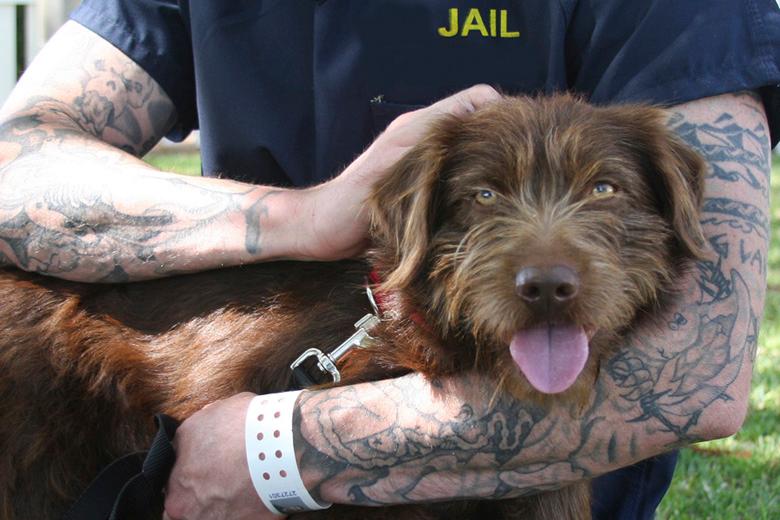The Orange County Board of Supervisors on Oct. 18 unanimously agreed to extend for three years a dog-training program that focuses on inmate rehabilitation.
The program—operated by Cell Dogs, Inc.—has been in place for about a year at the Theo Lacy Facility, a county jail in Orange. It was first started at the James A. Musick facility in Irvine but was shut down due to the pandemic.





